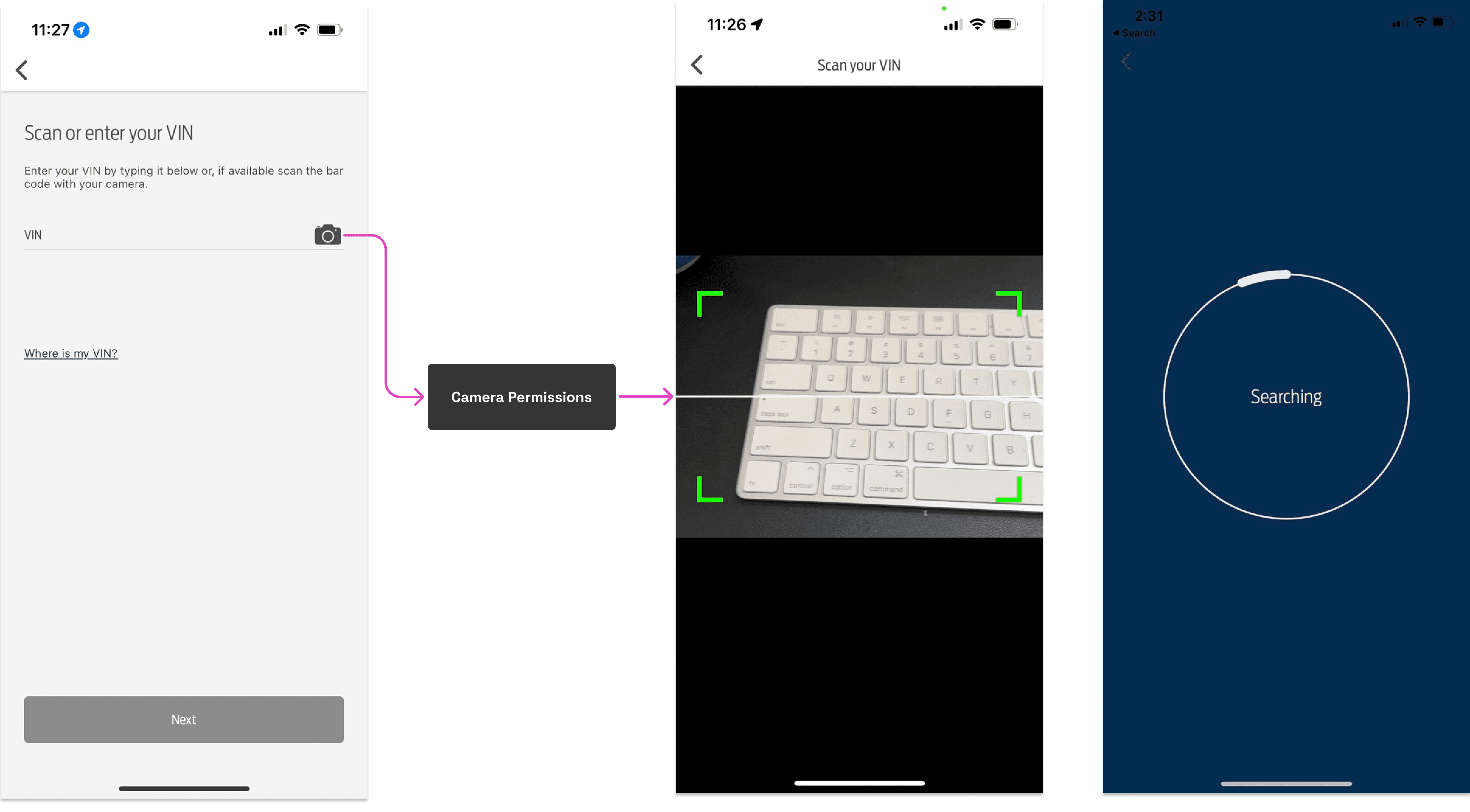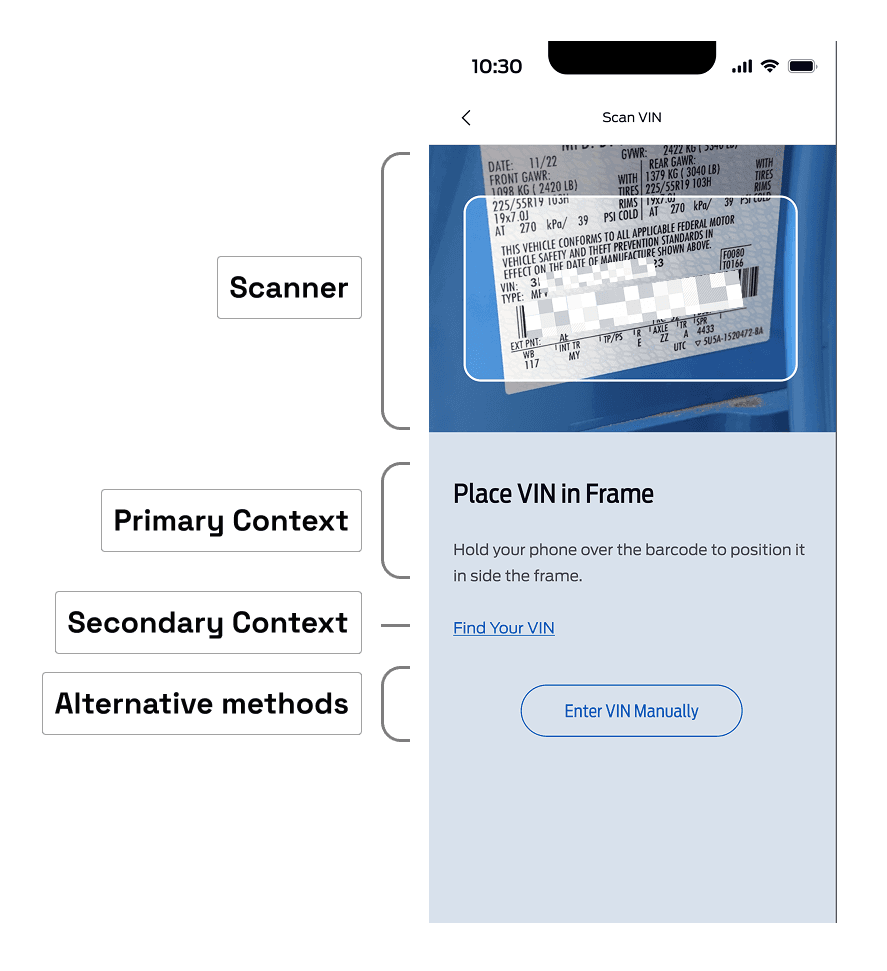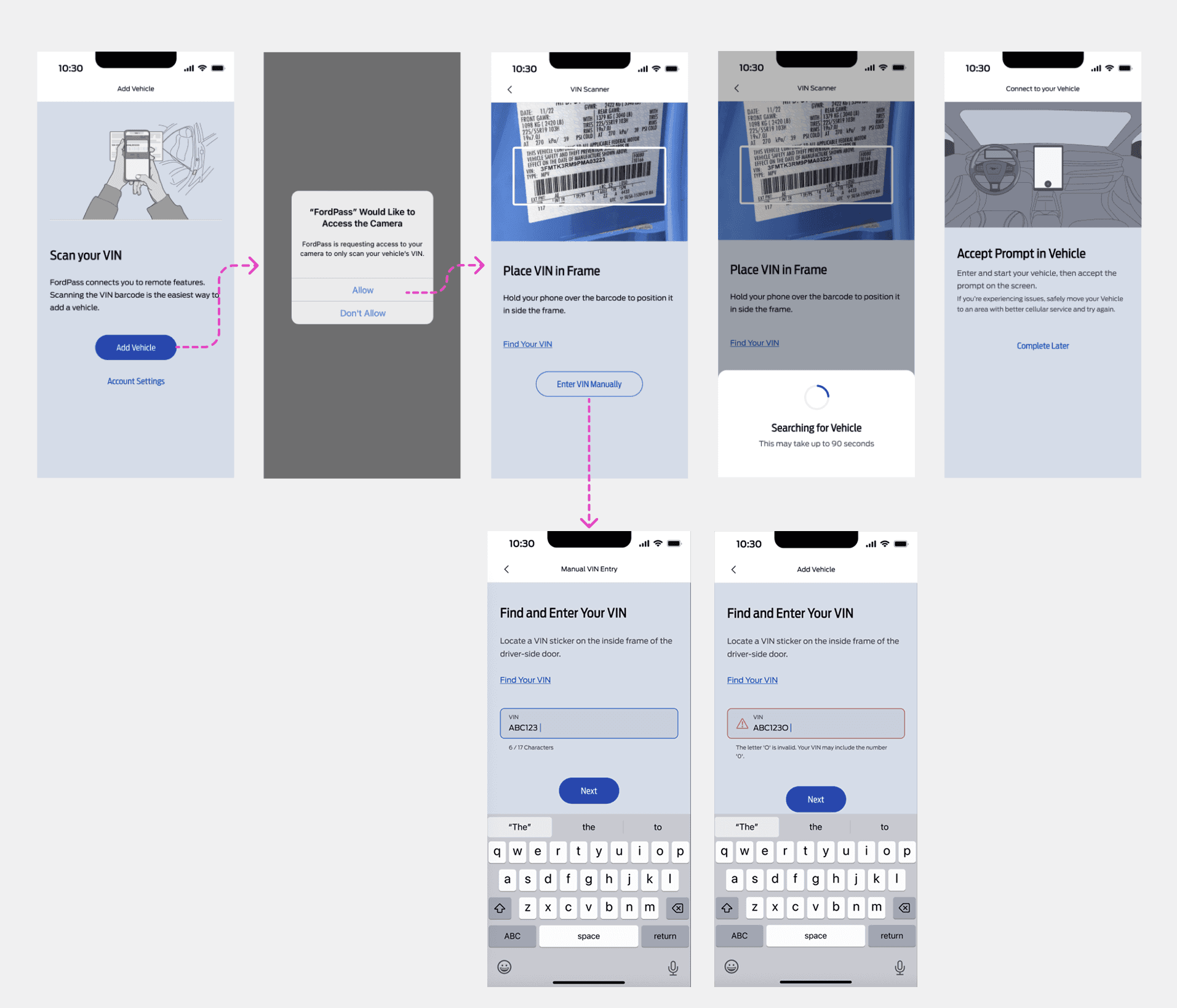
VIN Scanner: Adding Vehicles in FordPass
Adding a Vehicle to your Ford Mobile app was optimized for internal testers but not for our customers. The experience focused on manual entry of a 13 digital VIN (Vehicle Identification Number).
Define
When users encounter the VIN entry screen, the camera icon suggests a scanning feature, but there’s no clear indication of how it works, what to scan, or when it’s available. This lack of contextual guidance can lead to hesitation, failed attempts, or users abandoning the task, especially if they are unfamiliar with VIN locations or barcode formats.
Manual VIN entry is prone to errors
Upon first download, we ask the user to input their 13-Digital VIN (Vehicle Identification Number). This number is a series of numbers and letters that need to be entered with accuracy to properly add your vehicle to your Ford or Lincoln Mobile app. Common typing errors include:
0 (Zero) mistaken for invalid O (letter) or Q (letter)
1 (One) mistaken for invalid L (letter) character
Too many characters
Not enough characters
Lack of contextual guidance on how to use the scanner
When users locate the scanner, there’s no contextual guidance explaining what it does or how to operate it, leading to confusion and potential abandonment.
Research & Insight
User's will prefer to use the VIN Scanner to add a vehicle to their app. Most users should understand where to find their VIN barcode.
Usability Testing
I conducted a usability study in UserZoom to evaluate how users perform when adding a vehicle with the VIN scanner versus manual entry.
87% of participants preferred to use the scanner over manual entry
Participants were more likely to grant camera permissions when the purpose was clearly explained in context.
55% of participants knew where to locate the VIN barcode on their vehicle.
Survey
Conducted a survey to understand user preferences for interacting with the setup experience during the vehicle purchase process
Participants preferred to set up their vehicle on their own (outside of the dealer)
Process
We launched a scanner forward UX flow with supporting enhancements to both the VIN scanner and the manual entry screen
Leading with Scanner
Our research showed that users prefer using the VIN scanner as their primary method of entry. Based on this insight, we prioritized the scanner as the main experience, while still keeping manual entry available as a secondary option.
Note: flow simplified for demo purposes
Provide on-screen context
By allocating one-third of the screen to the VIN scanner, we were able to use the remaining two-thirds for primary and secondary contextual text and supporting links, guiding users more effectively to complete their tasks.
Solution
Providing clear instructions alongside the scanning process helps set user expectations and builds a mental model of what will happen next. The contextual guidance on the scanner page reassures customers and builds confidence in completing an otherwise unfamiliar action.
Note: flow simplified for demo purposes
Results
Achieved a ~20% decrease in error states through code optimization
Enable customers to set up their own vehicle without the support of Ford or Lincoln dealers
Code standardization and lower technical maintenance
Learnings
Testers are not our users
The organization continued to rely on the manual VIN entry method because initial data suggested high success rates. However, a closer look revealed that much of this data came from internal Ford testers, developers, and employees—not actual customers. During testing, we frequently copied and pasted test VINs into the app, and each instance was logged as a “successful entry.” This inflated the success metrics by thousands of entries per day, whereas real customers typically only enter a VIN once every few years.



